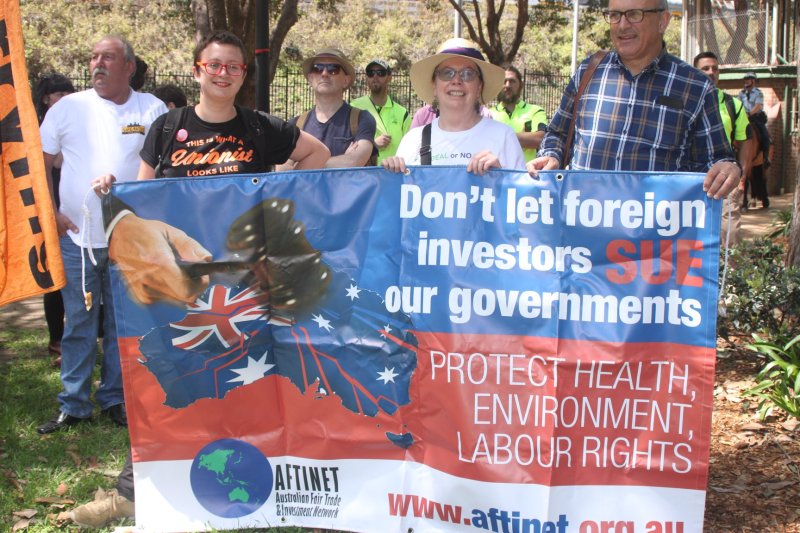- Negotiations

In the last two years the Australian Government has finalised bilateral trade agreements with China, Korea and Japan, which are now in force. The Trans-Pacific Partnership agreement between 12 Pacific Rim countries has been agreed, but is being reviewed by a Parliamentary committees before Parliament votes on the implementing legislation. The TPP will not come into force until six of the 12 countries including the US and Japan pass the implementing legislation, which is expected to take two years.
The current conservative Coalition government has agreed to include Investor-State Dispute Settlement (ISDS) provisions in the Korea and China bilateral FTAs as well as the TPP. ISDS allows foreign companies to bypass national courts and sue governments for compensation if they can argue that a change in law or policy harms their investment. The previous Labor government had a policy against ISDS, and even a previous Coalition government did not include ISDS in the Australia-US free trade agreement in 2004.
There is widespread opposition in the Australian community to the inclusion of ISDS in the TPP. The TPP is also controversial because it extends monopoly rights on expensive life-saving biologic medicines, which will mean more years of very high prices before cheaper versions become available. There are also grave concerns about its impacts on food labelling standards and expanded access for temporary workers without additional protection of workers’ rights. A recent World Bank study found that Australia was only likely to gain almost no economic benefit from the deal.
Australia is currently involved in multilateral negotiations towards the PACER-plus agreement with New Zealand and 14 Pacific Island countries, the Regional Comprehensive Economic Partnership (RCEP) and the Trade In Services Agreement (TISA). It is also negotiating bilateral trade agreements with India and Indonesia and will begin talks with Hong Kong and Taiwan later this year and the EU next year.
Contributed by AFTINET
last update: May 2016
Photo: AFTINET
4-Nov-2005
FT
In the event of failure in Hong Kong next month, foreign minister Alexander Downer said Australia would speed ahead with "Plan B" to sign further bilateral and regional trade agreements.
30-Sep-2005
The Australian
Australia and Indonesia bolstered trading ties today, which could support efforts by Canberra and Wellington to forge a free trade agreement with ASEAN.
24-Aug-2005
Australian Trade Minister Mark Vaile is to hold a round of free trade talks with his Malaysian counterpart at a meeting in Kuala Lumpur.
19-Aug-2005
It was meant to be the big breakthrough for Australian exporters — but official statistics show Australia’s exports to the US have fallen by 3 per cent since the start of the US free trade agreement.
16-Aug-2005
Herald Sun
The Federal Government wants to establish a powerful free trade bloc with Asia, giving Australia unprecedented economic access to almost half the world’s population.
27-Jul-2005
ABC
Australian Prime Minister John Howard has held talks with officials from the United Arab Emirates on another Free Trade Agreement. The UAE has the world’s 3rd largest oil reserves.
11-Jun-2005
Sify
The Australian Foreign Minister, Alexander Downer, on Wednesday hinted at the possibility of India and Australia entering into a Free Trade Agreement (FTA).
23-May-2005
Globes
A delegation of 30 Australian businesspeople and economic officials will arrive in Israel tomorrow to locate investment opportunities and seek to promote a bilateral free trade agreement with Israel.
23-Mar-2005
The Australian
John Howard will ask Japan to support an official feasibility study as the first substantial step towards a bilateral free trade agreement when he visits Tokyo next month.
2-Jan-2005
WSJ
Frustrated with global trade talks, Australia is using a slew of free-trade agreements to win business across the Asian-Pacific region.





